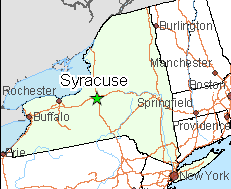
Another ISP Limbo Dance. How low can they go?
Telus, western Canada’s largest phone company, has announced it is slashing usage allowances as much as half and raising prices up to $8 a month on broadband packages, eight months after last summer’s $3 rate hike.
A sample:
- Internet 6 was $37, now $45. Usage cap reduced to 100GB, was 150GB.
- Internet 15 was $42, now $50. Usage cap reduced to 150GB, was 250GB.
- Internet 25 was $52 now $60. Usage cap reduced to 250GB, was 500GB.
- Internet 50 was $75 now $80.
A Telus spokesperson explained the reasons for the rate increases and allowance slashing:
It is only fair for customers to pay for the amount of bandwidth they use and be on a plan that realistically reflects their usage patterns; otherwise, moderate users end up subsidizing heavy users. Even with the change TELUS has some of the most generous usage caps in comparison to many other ISP’s. Most customers use only a fraction of the allotted threshold. Usage limits are put into place so that the small percentage of high usage customers to not impact the internet experience for other users on the network. We currently do not charge for over usage, but the thresholds allow us to ensure that customers are on an appropriate plan for them.
The rate increase is in response to rising costs in providing and maintaining the network. Since 2000, TELUS has invested more than $30 billion in infrastructure across Canada to provide our customers with some of the best communications technology anywhere in the world. These increases affect all clients, from TELUS employees to brand new sign-ups. All the pricing has been adjusted to the higher rate. In terms of price and quality TELUS Internet is very competitive versus our competitors. In most cases, TELUS services will still be less expensive than similar offerings from our competitors.
Most existing clients have already had the benefit of a promotion on sign-up. As with all promotions, including the current new client promotions, they run for a limited time and the discounts they offer expire. We do have loyalty programs in place for existing loyal clients and we do offer existing clients the new promotions in cases where they may not have received anything when they signed up.
Customers are outraged about the changes, particularly because Telus has been raising prices twice a year since 2011. The new rate plans are now comparable to Telus’ largest competitor, Shaw Cable.
Telus has not traditionally enforced usage cap violations on their network, nor have they imposed overlimit fees. But a customer service representative said “Telus can suspend allowance violators for 30 days for repeated violations.”
In North America, virtually every major ISP has watched bandwidth costs decline as connectivity continues to get cheaper. But that does not stop some providers from raising prices and slashing usage limits on a service most Canadians find they cannot live without.


 Subscribe
Subscribe
 Time Warner Cable customers in central New York will face paying higher cable bills next month as the company boosts rates.
Time Warner Cable customers in central New York will face paying higher cable bills next month as the company boosts rates. Telecom company lobbyists in Idaho are targeting “Do Not Call” laws that restrict telemarketing of phone and cable services, permitting sales calls whether residents are pre-registered on a “Do Not Call” database or not.
Telecom company lobbyists in Idaho are targeting “Do Not Call” laws that restrict telemarketing of phone and cable services, permitting sales calls whether residents are pre-registered on a “Do Not Call” database or not.
